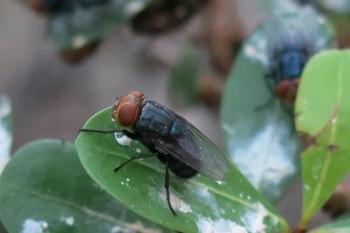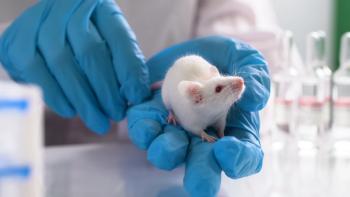
- dvm360 July 2020
- Volume 51
- Issue 7
Colorado squirrel tests positive for bubonic plague
The risk for contracting this infectious disease, which in the United States occurs primarily in the West, is extremely low when precautions are taken.
In the midst of
Caused by the bacteria Yersinia pestis, bubonic plague (the most common form of the disease) can be contracted by humans and household animals if proper precautions are not taken. The disease is infamous for killing about 25 million people in Europe during the Middle Ages. Worldwide, most cases occur in Asia and Africa. According to the
Cats are more susceptible to plague, and can die if not treated promptly with antibiotics, says JCPH. Cats can contract the illness from flea bites, a rodent scratch/bite, or rodent ingestion. Dogs are not as susceptible as cats but can contract the disease from plague-infected rodent fleas. Humans can be infected through flea bites, the cough of an infected animal, or by coming in direct contact with blood or tissue from an infected animal.
Dogs appear to be more resistant than cats to plague.
JCPH reassures the public that the risk of contracting the bubonic plague is extremely low, but appropriate precautions should be taken:
- Eliminate all sources of food, shelter and access for wild animals around the home.
- Do not feed wild animals.
- Maintain a litter-free yard to reduce wild animal habitats.
- Avoid contact with sick or dead wild animals and rodents.
- Use precaution when handling sick pets and have sick pets examined by a veterinarian.
- Consult with your veterinarian about flea and tick control for your pets, especially if you live near wild animal populations, such as prairie dog colonies or other known wildlife habitats.
- Keep pets from roaming freely outside the home where they may prey on wild animals and potentially bring the disease home.
According to the CDC, antibiotics are effective in treating plague. Without prompt treatment, however, the disease can cause serious illness or death.
Articles in this issue
over 5 years ago
I like big blocks and I cannot lieover 5 years ago
Why are there so many different models for COVID-19?over 5 years ago
Vector-borne disease prevalence in dogs with proteinuriaover 5 years ago
Modulating the immune system to fight for goodover 5 years ago
FDA OKs cell therapy clinical trial for feline gingivostomatitisover 5 years ago
Hillbilly beardover 5 years ago
The right task at the right timeover 5 years ago
Can dogs be used to screen for COVID-19?over 5 years ago
Can pandemic rules be broken?over 5 years ago
What at-will employment means for veterinariansNewsletter
From exam room tips to practice management insights, get trusted veterinary news delivered straight to your inbox—subscribe to dvm360.






